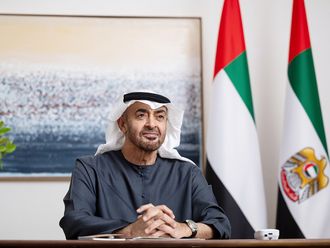Abu Dhabi: In their quest for achieving sustainability, governments across the globe should enhance capacity building through increased knowledge sharing, anticipate problems and act preventively, advisers from 35 countries told a global ID summit held in Abu Dhabi yesterday.
Richard Kerby, inter-regional adviser, UN, suggested governments need to undertake a process of transformative change for the future that requires to become catalysts for change instead of mere service providers; become facilitators in promoting networked co-responsibility among all stakeholders by engaging and empowering communities to take part in the solution of their own problems and allow for a competitive rather than monopolistic approach to provision of public goods and services.
Kerby told the seventh ID World Abu Dhabi, which discusses the latest developments in the fields of advanced identity systems, manufacturing of ‘smart’ ID cards and digital identification systems governments should also supports entrepreneurs in generating revenues and promoting partnerships and become results-oriented and customer-driven.
He stressed e-government development can strengthen national capabilities, support regional and national networks and provide stronger voice of citizens in global, regional and local negotiations and policymaking.
He said open data offers an effective platforms to facilitate knowledge sharing, skills development and capacity-building for sustainable development.
Kerby added partnership with data entrepreneurs and the private sector will help support change programs and advance e-government development.
“Customer-centric approach should be used by governments when implementing e-government products. Governments across the globe need to undertake a process of transformative change. E-government should be seen as a holistic process to transform government. The transformative changes entail not only the design and implementation of innovative practices, but more fundamentally a transformation of government’s role, functions, institutional frameworks and processes,” Kerby said.
Dr Ali Mohammad Al Khouri, director general of the Emirates Identity Authority, said there is an increasingly urgent need for effective cooperation and knowledge sharing as a way to develop advanced ID systems, specifically in the area of ID validation and authentication in the new virtual environments given the acceleratedly high expectations of customers.
“That is why we are in need for concerted efforts now more than ever to reduce the digital gap and improve the life conditions for all people on the earth, especially since the available technological solutions are still ambiguous and did not address the real needs of our societies in a practical and simple way.












